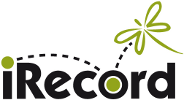Does anyone know of recording schemes, whether on iRecord or another platform, with any kind of control on accepting one's own records? It smacks of marking one's own homework. iNaturalist uses a 'wisdom of crowds' algorithm for acceptances but iRecord isn't built that way.
In theory the system could check whether the 'CMS User' of the original recorder is the same as that of the verifier trying to change the record's status. But what would it do then?

The straight answer to your question is no, I don't know of any platform that controls accepting records where the verifier and recorder are the same individual.
Whilst I agree that in an ideal world it would be advisable for someone different to the recorder to check them, I don't think it's really practical in most situations. Presumably prior to the widespread use of online schemes, records would be sent in by spreadsheet (or record card before that) - I assume that for common or distinctive species these would have been accepted, particularly for recorders of known competence (which all verifiers should be), and many databases I have seen are dominated by records by the county recorder that have been input directly with no extra verification.
Where a county recorder (or national recording scheme organiser) is appointed, as well as verifying records then by definition they would be expected to be someone with a good knowledge of their group and to be active in recording. It could be seen as undermining him or her if records made by a county or national expert had to all be passed to someone else to check.
I think all that can be done is make sure that verifiers operate on a similar basis that we would expect from other recorders - photographs, descriptions or voucher specimens to back up rare or unusual records so that they can be checked and agreed or retrospectively challenged if questioned, and be aware of our own limitations by checking with people with more/relevant expertise when something doesn't key out as expected or seems unusual. Obviously some organisations have this built in, e.g. rarities committees for birds and odonata, national referees for botanical families via BSBI etc.